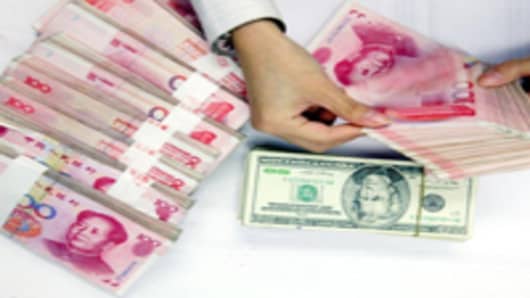Even as U.S. President Barack Obama looks set to sign into law a piece of legislation targeting "unfair" trade practices from China, speculation of a trade war brewing between the two countries is unwarranted, according to Brian Jackson, Senior Emerging Markets Strategist at the Royal Bank of Canada in Hong Kong.
"Trade war is overstating it a little, particularly because this is a continuation of existing U.S. trade policy," Jackson told CNBC on Wednesday.
"It is another indication that Washington is not happy with the pace of currency reform in China, and that is something to be borne in mind by policy makers in Beijing," he added.
The trade bill, which was passed in the Senate on Tuesday, gives the U.S. power to impose duties on subsidized goods from China, which Washington says is necessary to protect American jobs.
But China has hit back hard against the bill, saying it contravenes international rules. Beijing also maintains that the yuan is close to its fair value, and there is no need for a sharp revaluation just so the U.S. can tackle its massive trade deficit.
Still, the proposed bill will play into Beijing’s foreign exchange deliberations, says Jackson, who believes the conditions are right for further currency flexibility.
"We have seen a gradual improvement in the functioning of the exchange rate market in China. You are also getting a fall in the trade surplus for China, so that again creates conditions where you can afford to have a bit more flexibility in the exchange rate," he said.
Discussing the greatest risks facing the Chinese economy, Jackson says policymakers need to make adjustments for slowing external demand in light of the situation in Europe, as well as the risks in the property market.
"Beijing has been very happy with the way things are going in the property market. It is slowing down but not too aggressively. The risk though is that the slowdown could get more severe, and that would really drag down headline growth quite significantly," he said.


